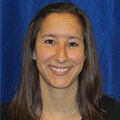Department of Medicine
Interstitial Lung Disease Program
Contact Information
Interstitial Lung Disease Program
Pulmonary Associates Clinic
Cox Building, Second Floor
55 Fruit Street
Boston,
MA
02114
Phone: 617-726-1721
Explore This Treatment Program
Multidisciplinary Care Team

The Massachusetts General Hospital Interstitial Lung Disease Program multidisciplinary team includes lung specialists, chest radiologists, pulmonary pathologists, thoracic surgeons and research scientists. We work together to:
- Deliver compassionate, comprehensive care for interstitial lung diseases, also known as pulmonary fibrosis
- Educate patients and their families about these diseases
- Improve our understanding of what causes these diseases and their progression
- Help translate this understanding into new treatments for patients
What to Expect
Our program is headquartered in the Pulmonary Associates Clinic, located on the second floor of the Cox Building. For your first visit, please bring any past evaluations or test results involving your lungs. If you have had imaging tests, it may be helpful to bring the study images themselves (you can ask to have these printed to a CD that we will upload at MGH).
If you have any questions about this or any other aspect of your care, please call our clinic coordinator at 617-726-1721.
At your first visit, you will meet with the lung specialist who will direct your care. You can expect:
- An in-depth discussion about how your illness has affected you
- A complete physical examination
- A thorough review of prior diagnostic studies (if applicable)
- Further diagnostic studies (if needed)
After your visit, our team may meet as a group to discuss your case, review your test results and compile recommendations. Your lung specialist may then schedule additional meetings and/or testing to diagnose your specific disorder and formulate a treatment plan.
State-of-the-Art Testing
Diagnosing the precise nature of your interstitial lung disease allows us to prescribe the most effective treatment plan. It also enables us to set realistic expectations about your prognosis, including quality of life.
Our program offers a variety of tests that we may use to diagnose and manage interstitial lung diseases, including:
- Complete pulmonary function test (i.e. breathing test)
- Exercise desaturation study: Measures how well and how fast you can walk with and without oxygen
- Six-minute walk test: A formal evaluation of how far you can walk and the oxygen saturations you maintain while walking
- Blood tests: These can help identify underlying cause(s) of your lung disease
- High-resolution computed tomography: A specific type of CT scan that helps your lung specialist determine what form of interstitial lung disease you have
- Echocardiogram: An ultrasound of the heart which looks at the overall health of the heart and screens for pulmonary hypertension, a condition of high blood pressure in the lungs
- Bronchoscopy: A procedure which involves the passage of a small, flexible fiber optic scope through the mouth into the lungs to obtain fluid and sometimes tissue to aid in diagnosis of the type of lung disease
- Surgical lung biopsy: Surgery used in some cases to diagnose the type of lung disease. This is performed by a thoracic surgeon and requires staying in the hospital at Mass General for a few days
An Individualized Treatment Plan
The interstitial lung diseases encompass a number of chronic lung conditions, including pulmonary fibrosis. These disorders involve inflammation or fibrosis (scarring) of the interstitium (the tissue between the air sacs of the lungs). This process impairs the tissue's ability to carry oxygen. As a result, patients often experience shortness of breath and are limited in their ability to perform daily activities.
Our Interstitial Lung Disease Program specializes in diagnosing and treating the full spectrum of interstitial lung diseases, including:
- Idiopathic Pulmonary Fibrosis
- Connective Tissue Disease related interstitial lung disease, such as seen with rheumatoid arthritis, scleroderma, Sjogren’s disease, or inflammatory myositis
- Sarcoidosis
- Hypersensitivity pneumonitis
- Organizing pneumonia
- Less common disorders such as lymphangioleiomyomatosis (LAM), Langerhans cell histiocytosis (LCH) or vasculitis
Common treatment options include:
- Antifibrotic medications such as pirfenidone and nintedanib, currently approved for some types of pulmonary fibrosis
- Corticosteroids or other immunosuppressive medications
- Pulmonary rehabilitation
- Influenza and pneumococcal pneumonia vaccines
- Oxygen supplementation for home and sleep and from portable containers
- Lung transplantation: We can identify potential candidates for lung transplantation and make referrals for some patients to the Mass General Lung Transplant Program for further evaluation
We look at factors such as age, overall health, medical history, tolerance for certain therapeutic options, personal preferences and your test results to determine your individualized treatment plan. We work hard to keep you and your referring doctor informed of our findings and treatment recommendations.
The interdisciplinary nature of our team offers many benefits for patients. We have the expertise to diagnose and treat the various forms of interstitial lung diseases and to address the complications of these disorders (e.g. sleep apnea, pulmonary hypertension) that can greatly compromise quality of life. We work closely with our colleagues in rheumatology, cardiology, sleep medicine and cardiothoracic surgery. Patients have the convenience of receiving all their care in one hospital, with a well-integrated team.
Research and Clinical Trials
Mass General has a long-standing research and clinical interest in interstitial lung diseases. Today, our program includes lung specialists, chest radiologists, pulmonary pathologists, thoracic surgeons and research scientists who focus on interstitial lung diseases.
Physicians and scientists in our program are working toward new advances for interstitial lung diseases for which current treatment options are limited. In addition to delivering exceptional clinical care, we offer patients the opportunity to participate in clinical trials of new therapies and scientific investigations into the causes of interstitial lung diseases.
If you are interested in learning about the research we are doing at Mass General please contact our research coordinators: Layla Rahimi (layla.rahimi@mgh.harvard.edu) and Caroline Fromson (cfromson@mgh.harvard.edu). You can also search for ongoing research projects at Mass General and other Mass General Brigham institutions at https://rally.massgeneralbrigham.org/.
General information about clinical trials can be found at the National Institute of Health website. You can search by disease, by keyword or by location.
We also understand that life with interstitial lung disease can be challenging in ways best understood by fellow patients. We sponsor a monthly support group for patients and caregivers living with pulmonary fibrosis. Meetings are the first Thursday of the month at Mass General and are open to all (you do not need to be a patient here). Please contact Dr. Katharine Black (kblack1@mgh.harvard.edu) for more details.
Learn more about our ongoing research & clinical trialsPatient Support Groups
We understand that life with interstitial lung disease can be challenging in ways understood best by a community of fellow patients and caregivers. While in the past we enjoyed meeting in person, through the past year, our community has shifted to a thriving online forum, sponsored by the ILD Collaborative, a local nonprofit dedicated to patient education. Meetings are open to all patients and caregivers, regardless of where you are a patient; you just need to register with the site.
We aim to cover all aspects of living well with pulmonary fibrosis; recent topics have included:
- Oxygen: Do I Need It? Should I Use It?
- Oxygen Supplies: Beyond the nasal cannula (led by a respiratory therapist)
- Vaccines and Immunology
- Senior Home Care Services
Please visit the ILD Collaborative site and select "Virtual Meetings" to explore. Feel free to contact Dr. Katharine Black (kblack1@mgh.harvard.edu) with questions or for more details.
Preparing the Next Generation of Pulmonologists
As part of a world-class academic medical center, the Division of Pulmonary and Critical Care Medicine is continually preparing the next generation of leaders in academic pulmonary and critical care medicine. Fellows in the Pulmonary (Lung) and Critical Care Fellowship Program receive clinical and research training in interstitial lung diseases and all other major pulmonary conditions.
Our Providers
-
![]()
- Pulmonary and Critical Care Medicine
- Department of Medicine
-
![]()
- Pulmonary and Critical Care Medicine
- Department of Medicine
-
![]()
- Director, Interstitial Lung Disease Program
- Director, Pulmonary Ambulatory Clinic
-
![]()
- Chief, Division of Pulmonary and Critical Care
-
![]()
- Pulmonary and Critical Care Medicine
- Department of Medicine
-
![]()
- Pulmonary and Critical Care Medicine
- Department of Medicine
-
![]()
- Pulmonary and Critical Care Medicine
Support the Division of Pulmonary and Critical Care Medicine
When you support the Division of Pulmonary and Critical Care Medicine, you are aiding our mission to provide our patients with comprehensive, compassionate care.










